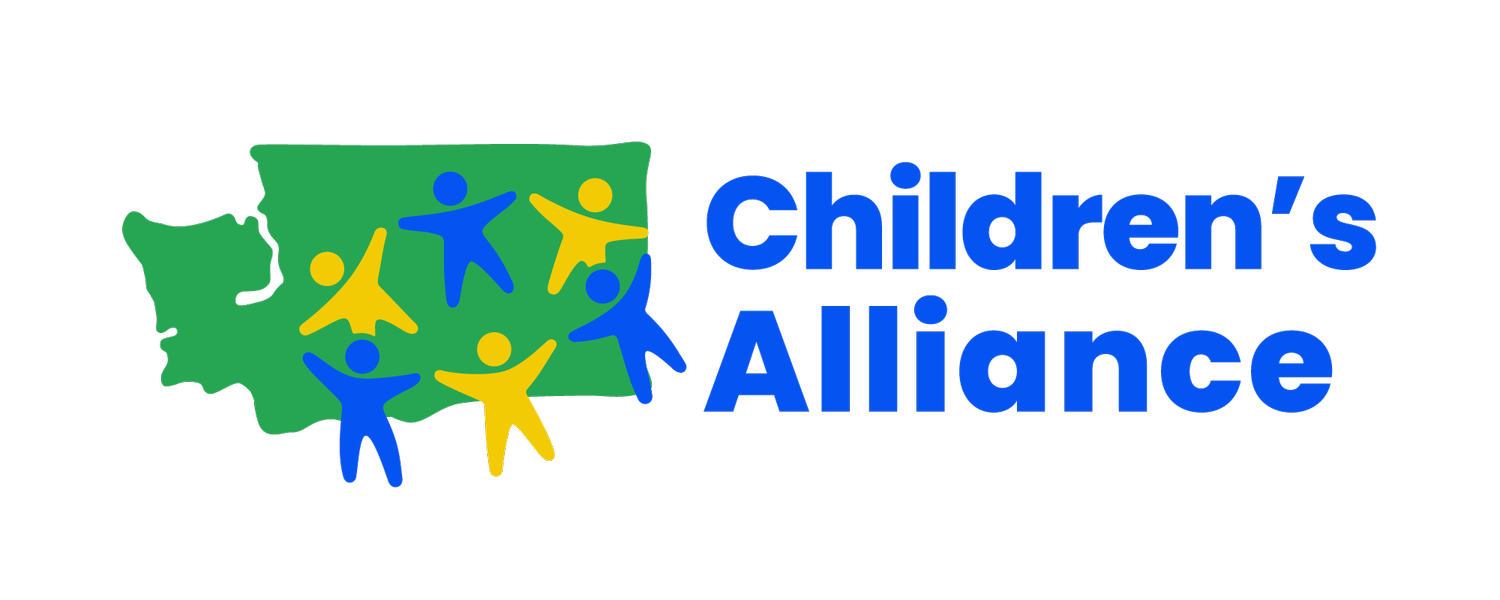POLICY UPDATE: BILLS WE WORKED TOGETHER TO PASS THIS YEAR WENT INTO EFFECT ON JUNE 6
Every legislative session, Children’s Alliance works with advocates from across the state to advance policies that support Washington’s kids and families. On June 6, many of the bills we advocated for during the 2024 legislative session went into effect:
Health Equity
HB 1455 - Ending child marriage: The loopholes allowing underage marriages in Washington have been closed, protecting minors from forced marriages and exploitation.
HB 1946 – Expanding eligibility for conditional scholarships to behavioral health providers: Providers are now eligible for scholarships through the Washington Health Corps if they commit to working in underserved behavioral health areas. These scholarships are expected to increase the number of behavioral health providers and promote diversity in the behavioral health workforce.
HB 2256 - Improving the Children & Youth Behavioral Health Workgroup: The timeline for this workgroup has been extended and membership has been expanded to include youth with lived experience.
SB 5853 - Allowing 23-hour behavioral health crisis centers to serve minors: Children and youth in crisis will now have another avenue to seek critical support and services.
SB 5580 - Improving maternal health outcomes: Additional funding is now available to support maternal health, such as the creation of a post-delivery and transitional care program for persons with substance use disorders.
SB 5829 – Screening newborns for congenital cytomegalovirus: The State Board of Health will be directed to consider adding congenital cytomegalovirus, a virus related to chickenpox, to the list of required newborn screenings. A report with recommendations is due December 31, 2025.
HB 1957 - Protecting access to preventative health services: Health insurers will now have to cover many services like immunizations, health screenings for children and postpartum persons, preventative medications like HIV prophylactics, and some contraceptives.
Economic Justice
HB 1895 - Streamlining the Working Families Tax Credit: Changes have been made to the application and eligibility process, including clarifying the refundable nature of the credit and relaxing the income verification requirements to make the application more accessible.
Early Learning
HB 1945 - Streamlining Working Connections Child Care (WCCC) eligibility for families receiving food benefits/ SNAP: Receipt of food assistance through SNAP will now satisfy income requirements for WCCC, making it easier for families to access subsidies they are entitled to.
HB 1916 – Supporting early intervention: The first month of service for the Early Support for Infants and Toddlers (ESIT) program will now be counted when calculating funding.
HB 2102 - Ensuring timely certification for Paid Family and Medical Leave (PFML): Medical certification requests for PFML now must be completed within seven days, helping more families get timely access to paid leave to care for themselves or a family member.
HB 2111 - Clarifying requirements for child care subsidies: Outdated deadlines and confusing language has been removed, so families can experience a smoother application process to access affordable child care.
HB 2331 - Modifying requirements for public school instructional and supplemental materials: Discriminatory book bans are now prohibited in order to allow every child access to an education that recognizes and celebrates diverse backgrounds and lived experiences.
HB 2195 - Improving early learning facilities grants: Grant limits have been removed, projects that are ready for construction will be prioritized, and 90% of project costs will be eligible for state funding when built alongside affordable housing units.
As always, there is more work to be done. We will continue to monitor the implementation of these bills and build upon the positive progress that has been made.
To stay updated on our progress, sign up for our email list.
